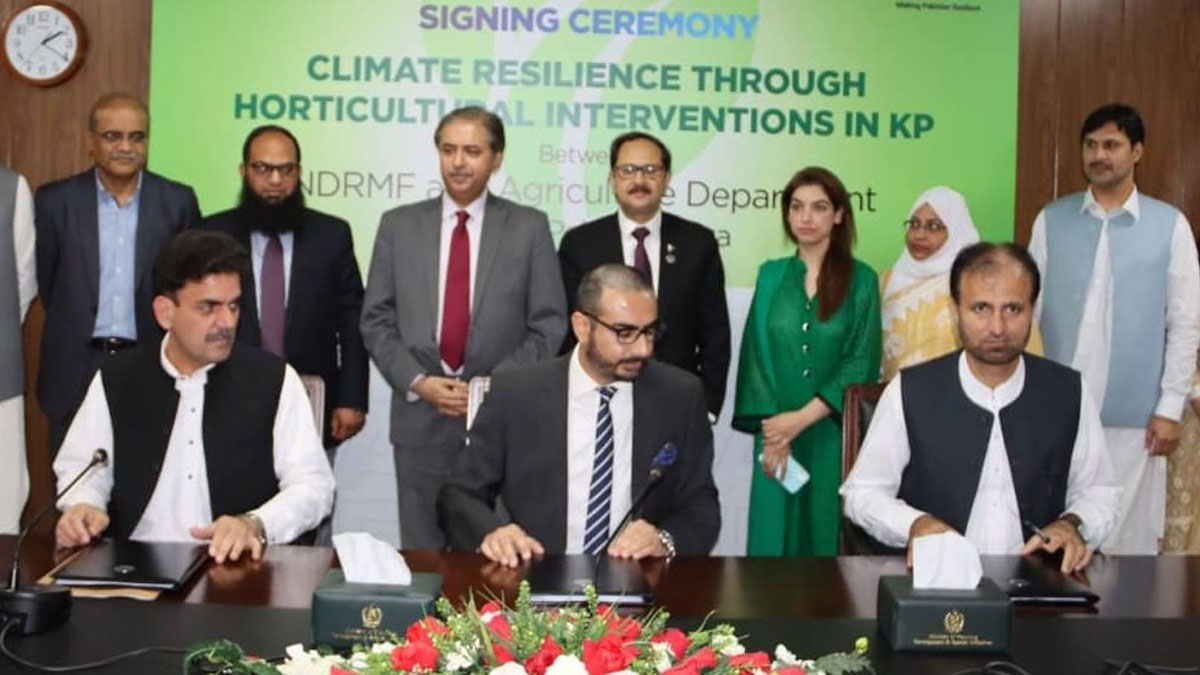National Disaster Risk Management Fund (NDRMF) funded the grant worth Rs 2.899 billion to Khyber Pakhtunkhwa to execute Climate Resilience Programme.
The signing ceremony of the Grant Implementation Agreement was conducted at the Ministry of Planning Development and Special Initiatives.
Secretary Ministry of Planning Development and Special Initiatives, Syed Zafar Ali Shah was also present at the ceremony during which a Grant Implementation Agreement signed by Muhammad Israr Khan, Secretary Agriculture, Fisheries, Livestock, and Cooperative Department KP, Shah Mahmood Khan, Muhammad Fawad Hayat, National Disaster Risk Management Fund (NDMRF), and Secretary Planning & Development Department, KP for the execution of Climate Resilience through Horticulture Interventions in KP with the amount of worth Rs 2899.67million financed by NDRMF.
Read more: Pakistan, World Bank sign $124 million agreement to tackle climate change
Addressing the ceremony, Secretary Planning Commission Syed Zafar Ali Shah praised the steps taken by the provincial government of KP and termed it a landmark project, focusing on climate resilience and producing highly valuable crops such as olives and saffron, which will help over 10,000 farmers, consequently playing its major role in income generation and job opportunities.
“Horticulture is an important element and such projects will help our farmers who are the backbone of the county’s economy,” Syed Zafar Ali Shah stated, adding that the country is facing many challenges and flood is one of them which directly disturb our agriculture sector and such projects are needed to contain the disaster.
Earlier, Zafar Ali Shah informed that the key objective of the project is the effective utilization of potential arable and cultivable wasteland to increase the production of olive oil and saffron while saving foreign reserves. In addition, it will boost climate resilience following adverse effects of climate change to increase food security.
Moreover, NDRMF is a state-owned entity directed to build climate resilience in Pakistan by reducing the socio-economic and monetary vulnerability of the country and its population to natural menaces by prioritizing and sponsoring investments in Disaster Risk Reduction and preparedness that have high economic advantages taking into account climate change, disaster risks, and their influences.





















